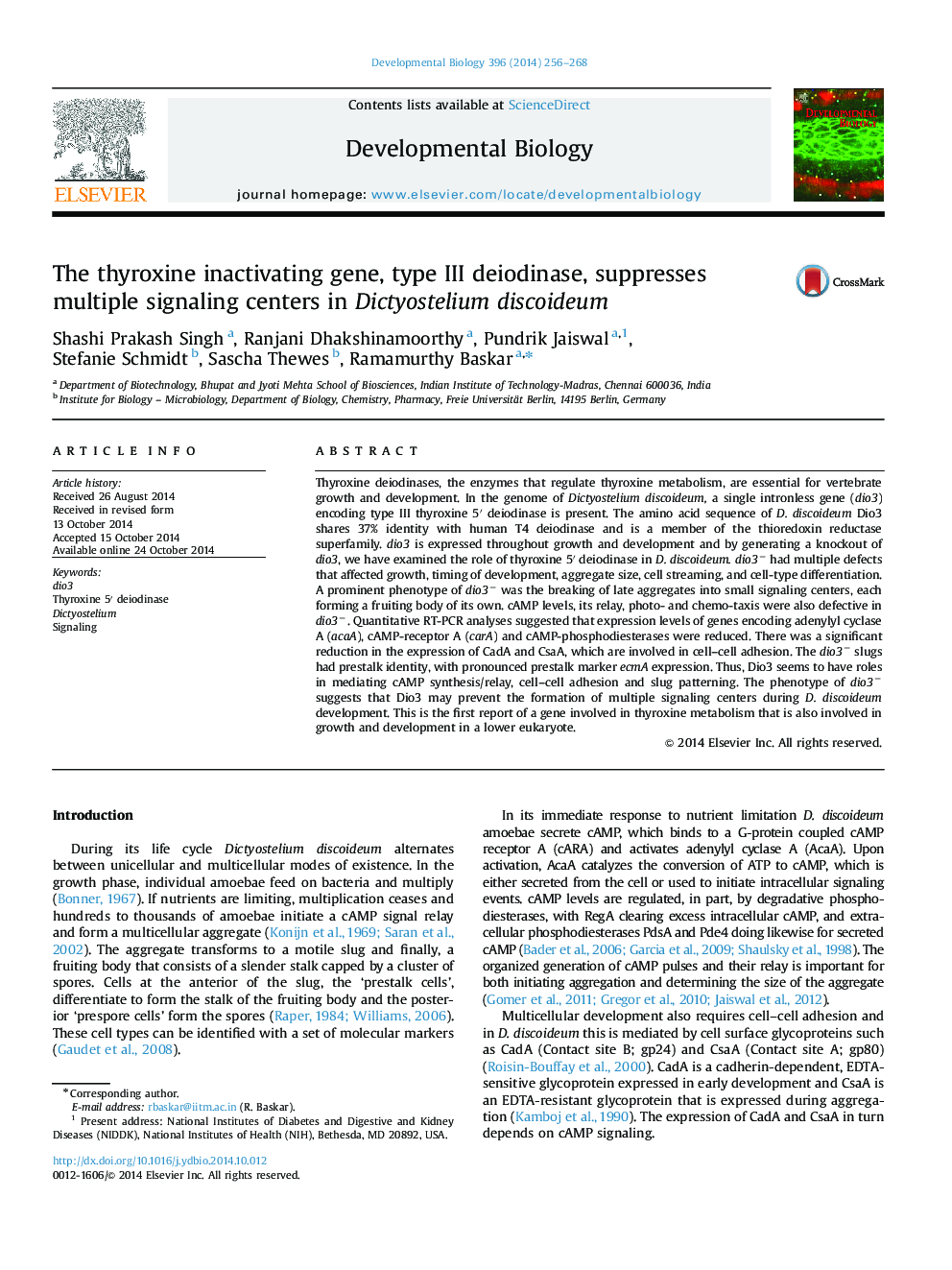| Article ID | Journal | Published Year | Pages | File Type |
|---|---|---|---|---|
| 10931553 | Developmental Biology | 2014 | 13 Pages |
Abstract
Thyroxine deiodinases, the enzymes that regulate thyroxine metabolism, are essential for vertebrate growth and development. In the genome of Dictyostelium discoideum, a single intronless gene (dio3) encoding type III thyroxine 5â² deiodinase is present. The amino acid sequence of D. discoideum Dio3 shares 37% identity with human T4 deiodinase and is a member of the thioredoxin reductase superfamily. dio3 is expressed throughout growth and development and by generating a knockout of dio3, we have examined the role of thyroxine 5â² deiodinase in D. discoideum. dio3â had multiple defects that affected growth, timing of development, aggregate size, cell streaming, and cell-type differentiation. A prominent phenotype of dio3â was the breaking of late aggregates into small signaling centers, each forming a fruiting body of its own. cAMP levels, its relay, photo- and chemo-taxis were also defective in dio3â. Quantitative RT-PCR analyses suggested that expression levels of genes encoding adenylyl cyclase A (acaA), cAMP-receptor A (carA) and cAMP-phosphodiesterases were reduced. There was a significant reduction in the expression of CadA and CsaA, which are involved in cell-cell adhesion. The dio3â slugs had prestalk identity, with pronounced prestalk marker ecmA expression. Thus, Dio3 seems to have roles in mediating cAMP synthesis/relay, cell-cell adhesion and slug patterning. The phenotype of dio3â suggests that Dio3 may prevent the formation of multiple signaling centers during D. discoideum development. This is the first report of a gene involved in thyroxine metabolism that is also involved in growth and development in a lower eukaryote.
Keywords
Related Topics
Life Sciences
Biochemistry, Genetics and Molecular Biology
Cell Biology
Authors
Shashi Prakash Singh, Ranjani Dhakshinamoorthy, Pundrik Jaiswal, Stefanie Schmidt, Sascha Thewes, Ramamurthy Baskar,
